Are Calico Cats Autistic? Top 3 Research Explain, Facts & FAQ

Calico cats, with their vibrant and distinctive coat patterns, have always captivated the imagination of cat lovers worldwide. However, there’s a curious question that occasionally surfaces in feline-focused conversations about whether Are Calico Cats Autistic.
There is no scientific evidence to support the idea about Are Calico Cats Autistic? or any other cats for that matter, can be diagnosed with autism. However, Autism is a complex neurodevelopmental disorder that primarily affects humans, and its diagnostic criteria are based on specific behavioral and social characteristics.
Calico cats, on the other hand, are known for their distinctive tricolor coat pattern, which is a result of their genetic makeup. The coat color in calico cats is determined by the presence of specific genes located on the X chromosome. While calico cats may exhibit unique personality traits like any other cat, attributing a human neurodevelopmental disorder to them lacks scientific basis.
It’s essential to rely on accurate information and consult veterinary professionals for any concerns related to the health and behavior of your pets. Associating animals with human medical conditions without proper evidence can perpetuate misinformation and lead to misunderstandings about both animal behavior and medical disorders.
Understanding Calico Cats
Understanding Calico Cats, renowned for their tricolor coat, boast a genetic makeup that creates this mesmerizing pattern. Understanding Cat Behavior explains how calico cats exhibit diverse personalities, akin to their diverse coat patterns. While calico cats are fascinating in their own right, attributing autism to their behavior requires a more nuanced approach. Your question will be discussed here Are Calico Cats Autistic?
Autism in Animals: Exploring the Possibilities of the Research Areas about Are Calico Cats Autistic?
Autism in Animals Autism, primarily a human neurodevelopmental disorder, has sparked curiosity regarding its presence in the animal kingdom. Studies, such as those from the National Institute of Neurological Disorders and Stroke, have explored autism-like behaviors in animals, broadening our understanding.
However, directly equating these behaviors to autism in animals, including calico cats, demands careful examination. So, is the Male Calico cat very rare for Calico Cats Autistic?
Do Calico Cats Display Autism-Like Behaviors?
Research suggests that certain behaviors in calico cats might resemble autistic traits in humans. These behaviors, which include sensitivity to stimuli and distinct social interactions, have intrigued scientists and cat enthusiasts alike.
Yet, it’s crucial to note that feline behaviors, though diverse, do not always align perfectly with human neurodevelopmental conditions. Examining the Myths and Facts Myth: Are Calico cats autistic? due to their unique genetics.
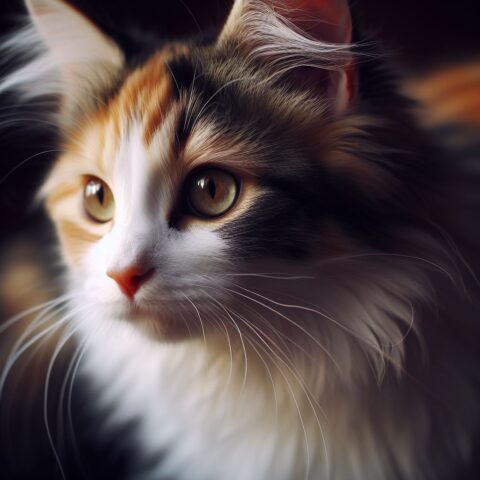
Dispelling Myths: Calico Cats and Autism
Fact: Calico cats’ genetics create their coat patterns; however, attributing autism solely to genetics oversimplifies a complex neurological condition. Calico cats Myth: Autism in animals mirrors human autism. Fact: While animal behaviors can resemble autistic traits, the fundamental differences in cognitive processes necessitate caution when drawing parallels.
All Cats Are on the Autism Spectrum: A Playful Perspective
Author Kathy Hoopmann has written the famous book All Cats Are on the Autism Spectrum. His book where he writes All-new Cats takes a playful look at the world of autism.
Moreover, these fun feline friends will strike a chord with all those who are familiar with typical autistic traits, bringing to life common characteristics such as sensory sensitivities, social issues, and communication difficulties.
It is touching, humorous, and insightful. His book evokes all the joys and challenges of being on the autism spectrum. For leaves the reader with a sense of the dignity, individuality, and potential of autistic people. However, Cat-scratch disease (CSD) is an uncommon illness that can be transmitted to people by cats.
FAQs: Frequently Asked Questions about Are Calico Cats Autistic?
Q1: Can calico cats be diagnosed with autism? Are Calico Cats Autistic?
Animals, including calico cats, lack formal diagnoses for autism due to the fundamental differences in animal and human neurology.
Q2: What are the signs of autism-like behaviors in calico cats? Or are Calico Cats Autistic?
Calico cats might exhibit behaviors like repetitive movements or social peculiarities. But these do not equate to an autism diagnosis.
Q3: Is there a genetic link between calico coat patterns and autism-like behaviors?
Research explores the genetic basis of calico patterns but establishing a direct link to autism-like behaviors requires further in-depth studies. All are Calico Cats Females.
Appreciating the Diversity of Animal Behavior
In this article, while calico cats are undeniably captivating and display a wide array of behaviors, labeling them as autistic oversimplifies both feline cognition and the complexity of autism.
As we continue to uncover the mysteries of animal behavior, it’s crucial to appreciate the diversity of neurological experiences across species. Remember, the beauty of calico cats lies not in their alleged diagnoses, but in their unique personalities and enchanting coats.
To delve into this intriguing query, we need to understand the genetics of calico cats, explore the realm of autism in animals, and decipher the truth behind the anecdotes and myths. Are Calico Cats Autistic?
Do calico cats have autism?
No, calico cats, like all other cats, do not have autism. Autism is a complex neurodevelopmental disorder that affects humans and cannot be diagnosed in animals, including cats.
Although there are both sides of controversy about are calico cats autistic. It’s found in research that autism isn’t a one-size-fits-all spectrum.
Calico cats, on the other hand, are simply a specific color pattern in domestic cats characterized by their tri-color coat of white, black, and orange (or gray, black, and orange). This unique coloration is due to their genetics and has no connection to autism or any other human-specific disorders.
What syndrome do calico cats have?
Calico cats do not have a specific syndrome. “Calico” refers to a specific coat color pattern in cats, not a syndrome or disorder. However, Calico cats are characterized by their tri-color coat, typically a combination of white, black, and orange (or gray, black, and orange). This color pattern results from the interaction between different coat color genes in cats.
Calico cats are not associated with any particular syndrome or health condition. They are domestic cats with unique and beautiful coat coloration, and their patterns are the result of genetic factors. Each calico cat is an individual with its personality and traits, unrelated to any specific syndrome. Are Calico Cats Autistic?
What are the behavior problems with calico cats?
There is no scientific evidence to suggest that calico cats have specific behavior problems. Like all cats, calico cats have unique personalities and behaviors that can vary widely from one individual to another. More
While there are certain general behavioral traits that some calico cats might share, these traits are not exclusive to calico cats and can be found in cats of other colors and patterns as well. Are Calico Cats Autistic?
It’s important to remember that a cat’s behavior is influenced by various factors, including genetics, early socialization, environment, and individual experiences. Gingham Dog and Calico Cat—Modern Version Articles by Bert Kruger Smith
While calico cats are not predisposed to specific behavior problems, some cat owners have reported that calico cats can be strong-willed, independent, and sometimes a bit sassy. However, these traits are not universally applicable to all calico cats.
If you are experiencing specific behavior problems with your calico cat or any other cat, it’s best to consult with a veterinarian or a professional animal behaviorist. They can provide tailored advice and solutions based on the specific behavior issues you are facing with your cat. Are Calico Cats Autistic?
How can you tell if a cat has autism?
Cats cannot be diagnosed with autism because autism is a complex neurological condition that affects humans. It involves specific social, communicative, and behavioral challenges unique to humans. Are Calico Cats Autistic?
Autism is diagnosed based on behavioral criteria, which cannot be applied to animals like cats because they do not exhibit the same social and communicative behaviors as humans.
Cats, like all animals, have their unique behaviors and ways of interacting with the world. If you are concerned about your cat’s behavior or health, it’s important to observe them closely and consult with a veterinarian or animal behaviorist who can provide appropriate guidance.
They can help you understand your cat’s behavior and address any concerns you may have about their well-being. So we get an answer to the question Are Calico Cats Autistic? #Calico Cats Autistic
Do you think that Autism isn’t a spectrum?
In the vast tapestry of human diversity, the term “autism spectrum” attempts to encapsulate the myriad ways in which autism manifests. Yet, this phrase, though widely used, fails to capture the true depth of this neurological variation. Comparing it to calico cats might seem unconventional, but this analogy sheds light on the intricate nature of autism.
Calico Cats: A Tapestry of Colors
With their distinctive tricolor fur, Calico cats provide an unexpected but apt comparison. Just as all calicos share the tricolor trait, individuals on the autism spectrum share common characteristics.
However, the analogy goes deeper: the way colors blend on a calico coat is as unique as a fingerprint. Similarly, autism traits intermingle in many ways, creating a vast array of abilities, challenges, and strengths among individuals.
Beyond High and Low Functioning
The conventional labels of “high functioning” and “low functioning” further oversimplify the complex reality of autism. Autism traits are not linearly distributed from mild to severe; instead, they form a rich mosaic.
People labeled as “high functioning” might excel in certain areas but face profound challenges in others. Likewise, those deemed “low functioning” might display remarkable talents that conventional measurements fail to acknowledge.
Understanding the Spectrum
The heart of the issue lies in the misunderstanding of what a spectrum truly represents. When most people hear “the autistic spectrum,” they envision a straightforward gradient, from mildly to severely autistic. This simplistic view does a disservice to the intricate and diverse ways in which autism presents itself.
Embracing Neurodiversity
A more nuanced understanding of autism is essential. Recognizing autism as a spectrum of abilities and challenges allows society to embrace neurodiversity fully. Instead of forcing individuals into ill-fitting categories, we should celebrate their unique qualities. Just as a calico coat is admired for its distinctiveness.
In conclusion, the intricate and distinct neurology of cats, exemplified by Calico cats, sets them apart from humans’ perception, comprehension, and navigation of their environment.
The concept of autism, tailored to human neurology, cannot be applied to feline cognition.
Thus, the assertion that Calico cats are autistic lacks a scientific foundation. Understanding the unique realities of cat neurology is crucial in fostering a more accurate and informed discourse surrounding their behavior and mental processes.
How can you tell if a cat has autism? What syndrome do calico cats have?
Calico cats do not have a specific syndrome. The term “calico” refers to their distinctive coat color pattern, characterized by patches of three colors: black, orange, and white.
This coloration is linked to the cat’s genetics, specifically the presence of two X chromosomes, which is more common in female cats. Male calico cats are rare and usually have an extra X chromosome (XXY), making them typically sterile.
Calico cats are known for their unique and vibrant coat color pattern. They are not associated with any particular syndrome, but they are often admired for their striking appearance.
Regarding the question about autism in cats, it’s important to note that autism is a complex neurodevelopmental disorder typically associated with humans.
While there are certain behaviors in cats that might resemble human autism traits, attributing a formal diagnosis of autism to a cat is not generally recognized in veterinary medicine.
If you notice unusual behaviors in your cat, it’s essential to consult with a veterinarian. They can help determine if there are any underlying health issues or behavioral concerns and provide appropriate guidance or treatment.
It’s important to avoid anthropomorphizing animals and to rely on veterinary professionals for accurate assessments of their health and behavior.
In conclusion, the intricate and distinct neurology of cats, exemplified by Calico cats, sets them apart from humans’ perception, comprehension, and navigation of their environment.
The concept of autism, tailored to human neurology, cannot be applied to feline cognition.
Thus, the assertion that Calico cats are autistic lacks a scientific foundation. Understanding the unique realities of cat neurology is crucial in fostering a more accurate and informed discourse surrounding their behavior and mental processes.
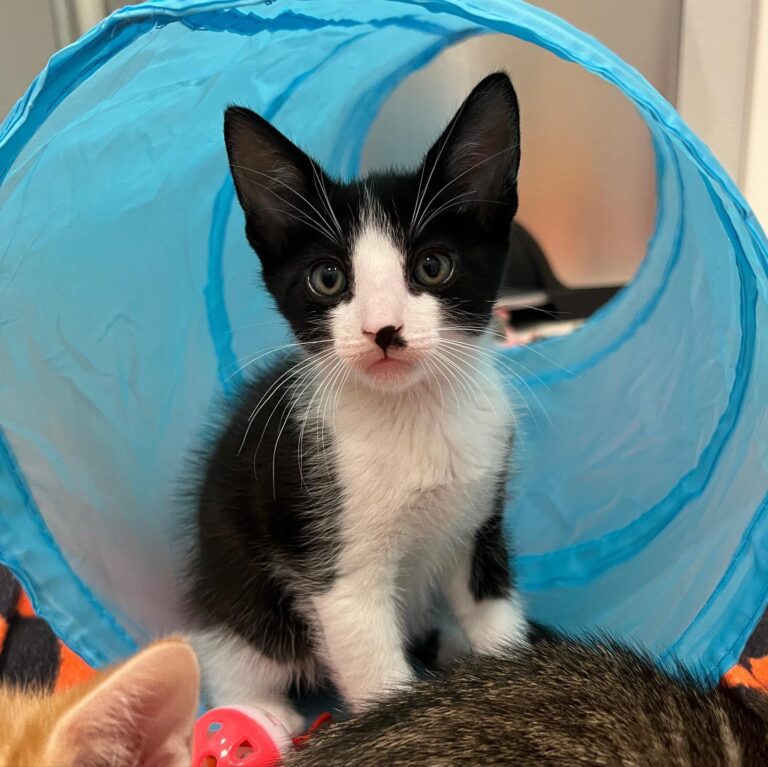

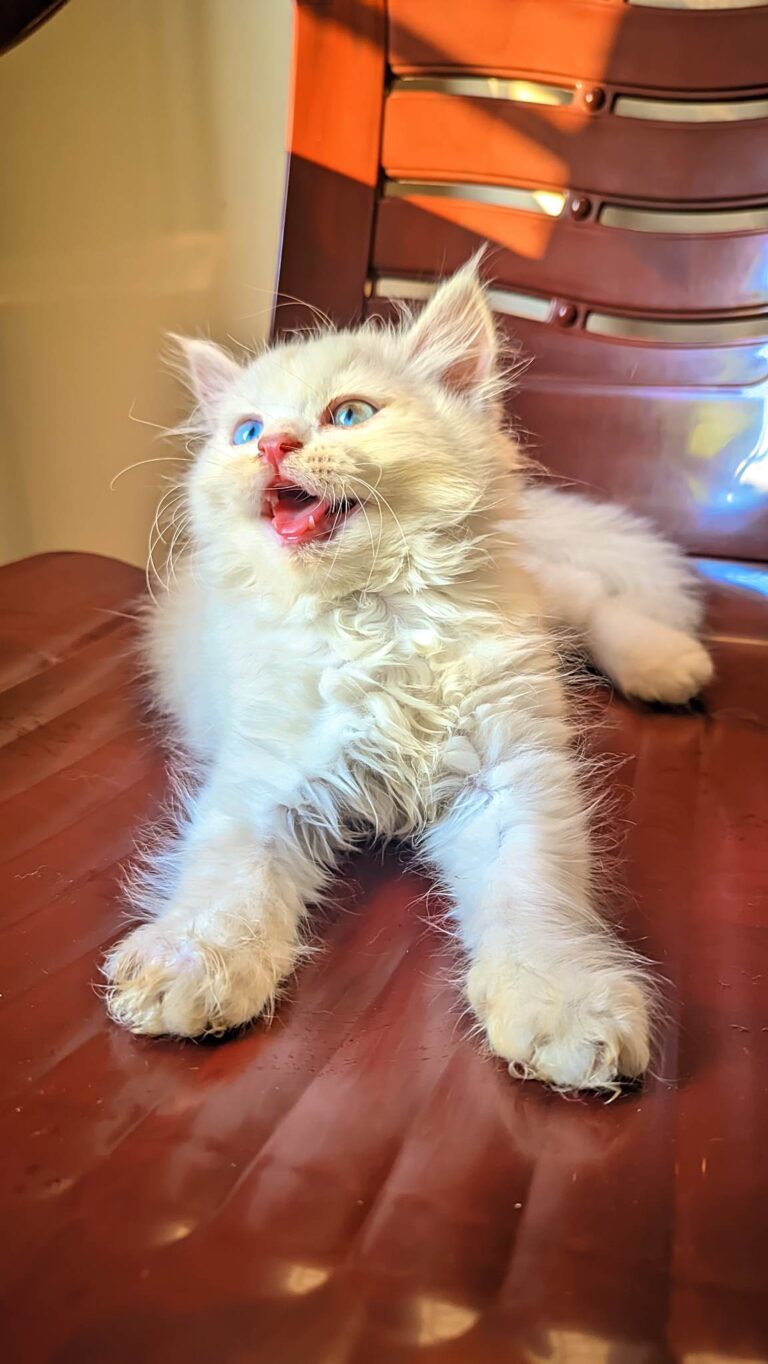
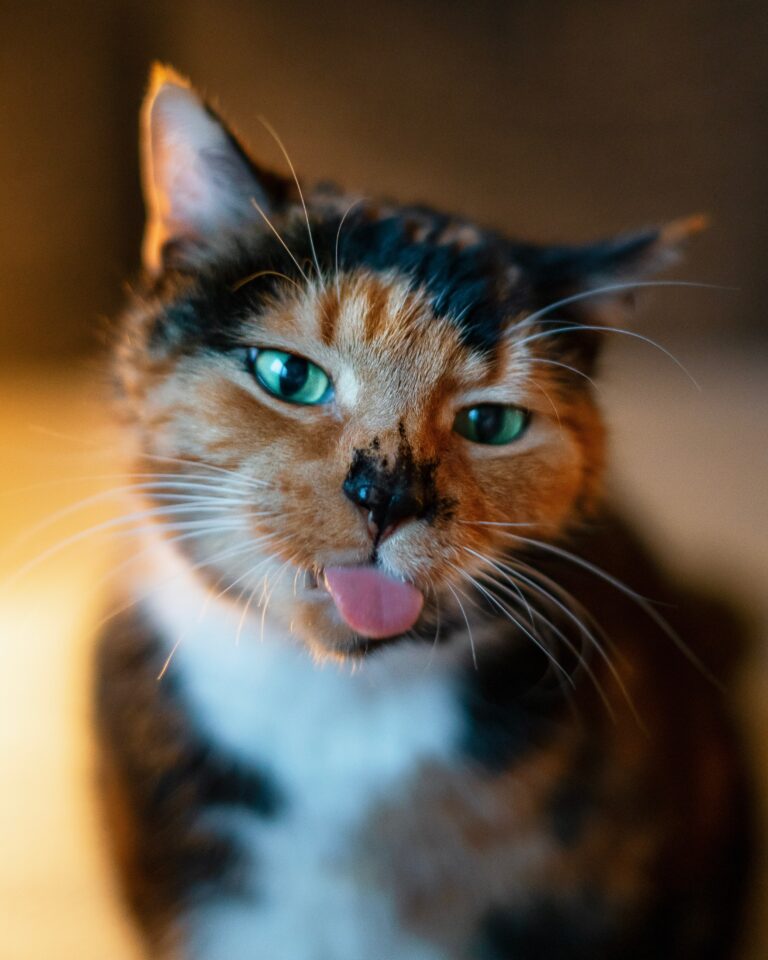
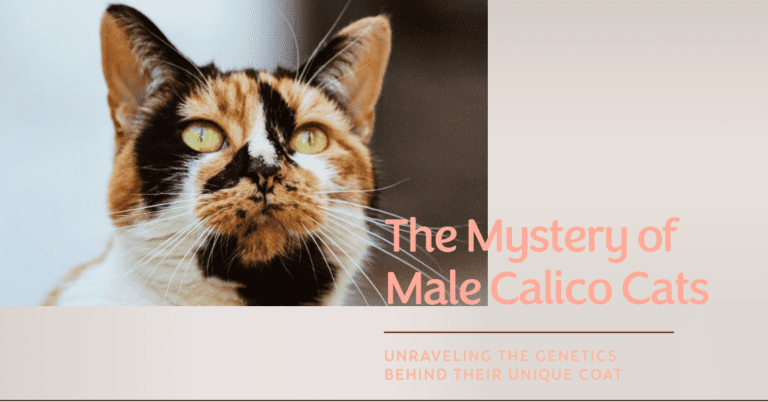

Very interesting. My friend’s cat is a calico, too. She is female and sassy.